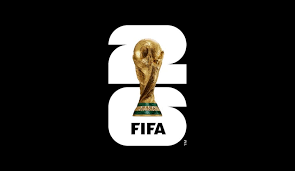June 24 – Twenty-seven years ago in Lyon, France, white roses and geopolitics collided in football’s most politically charged encounter. Iran beat the United States 2-1 at the 1998 World Cup, but not before gifting their opponents flowers in a carefully choreographed show of diplomacy that had FIFA suits sweating in the stands.
The supreme leader Ali Khamenei had reportedly ordered his team not to approach the Americans during pre-match ceremonies. Instead, the Iranians stood their ground while their opponents walked across the pitch, roses were exchanged, and football temporarily conquered politics.
Fast forward to today, and those same nations are heading for another World Cup collision course – except this time, the stakes couldn’t be higher.
The US bombed Iranian nuclear sites, US president Donald Trump announced Saturday, just months before Iran prepares to play at the 2026 World Cup potentially on American soil. Iran secured their place in the 2026 FIFA World Cup after a 2-2 draw with Uzbekistan in Tehran back in March.
The timing is exquisite in its awkwardness. Trump’s weekend airstrikes have FIFA scrambling behind closed doors. Under FIFA statutes, there’s nothing preventing Iran from playing group matches in the US – except the small matter of escalating military conflict and travel restrictions.
The only escape route? Landing in Group A, which would keep Iran’s matches in Mexico until the knockout rounds. Should they top their group, they’d stay south of the border through the Round of 32 and potentially the Round of 16 before any forced trip to American soil.
FIFA president Gianni Infantino has staked his reputation on this World Cup running smoothly. The prospect of empty stadiums, security nightmares, or diplomatic boycotts represents his worst nightmare made manifest. The governing body that prides itself on football transcending politics suddenly finds itself at the mercy of geopolitical chess moves.
The 2022 World Cup saw these nations meet again, with the Americans prevailing 1-0. No roses were needed that day in Qatar – the football did the talking.
But times have changed dramatically. When the World Cup draw takes place in December, every FIFA official will be watching the Group A ball with particular interest. The alternative – Iran playing group matches in packed American stadiums while diplomatic tensions simmer – represents a powder keg nobody wants to ignite.
The beautiful game has always been political, but rarely has a tournament draw carried such explosive potential. FIFA’s careful choreography of global football is about to face its sternest test yet.
Contact the writer of this story at moc.l1750849407labto1750849407ofdlr1750849407owedi1750849407sni@o1750849407fni1750849407

